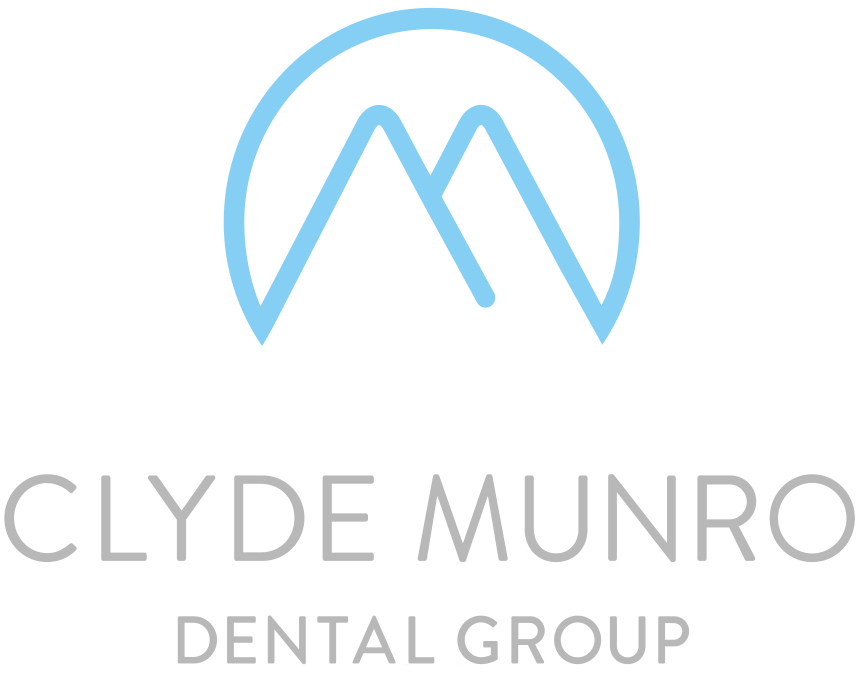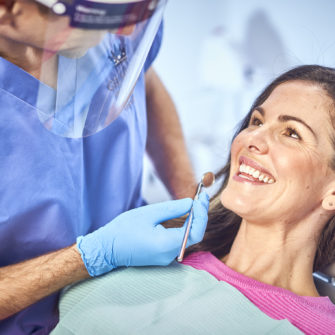Emergency Dental Care: When to Seek Immediate Help
Published: 26 August 2025
Dental injuries can be distressing, no matter your age or how many similar incidents you’ve experienced, and you may be wondering when it’s appropriate to contact your dentist or even visit A&E.
If you’re unsure about the best approach to take with a potential emergency, this blog will take a closer look at some of the most common dental emergencies, treatments, and preventative measures you can take to minimise your risk.
The most common signs & symptoms of dental emergency
Before looking more closely at the services available and preventative measures, let’s look at some of the most common reasons you may need emergency dental care.
While this list will be able to give you general advice, the context of your injury is essential, and you should, therefore, use your judgement and insight to decide on what to do next.
Knocked out or damaged teeth
While a damaged or knocked-out tooth can cause panic due to the pain it causes (and the often distressing ways it can occur), it is, in many cases, very treatable, provided the correct steps are followed.
For adults, a knocked-out tooth should, if possible, be very gently rinsed with clean water or milk without touching the root and placed back in the gum before visiting a dentist. If this is not possible, then the tooth is best kept in the sulcus of the cheek (taking care not to swallow it) or in a cup of milk. While not completely foolproof, this method is the most effective way to save the tooth.
Either way, seeing your dentist as soon as possible is recommended.
For broken teeth, dentists often recommend treatment that features composite bonding, veneers, or crowns, depending on the severity of the break. Whatever option is most appropriate, visiting the dentist as a matter of priority can prevent further damage and infection.
Abscesses
Dental abscesses — a pus-filled pocket caused by bacterial infection — are another condition that must be treated as an emergency. While there are many reasons abscesses can occur, some of the most common are tooth decay, gum disease, and other injuries to surrounding teeth or tissue.
Symptoms include intense tooth or gum pain, facial or jaw swelling, and a high temperature. Dental abscesses can have serious implications, as the infection can spread to other parts of the body. Therefore, they should be considered a priority.
Uncontrolled bleeding
While bleeding is generally a symptom of a separate issue, it should still be taken seriously. Before seeking professional help, it’s important to try basic first-aid techniques. Most common dental causes are following a tooth extraction.
Start by rinsing your mouth with warm salt water before applying direct pressure to the area in the mouth with a clean cloth. You can also use a cold compress to reduce inflammation and swelling. While this may minimise the necessity of an emergency appointment, a prompt visit is still recommended.
While this can be effective, uncontrolled bleeding, or any bleeding that continues for more than 24 hours should be treated as soon as possible by a dental or medical professional. The same goes for any bleeding that is accompanied by sustained painful swelling.
Impacted or dislodged dental & orthodontic fittings
Any damage to crowns, bridges or even composite bonding can be uncomfortable in terms of physical discomfort, sensitivity and the way it may impact your smile. While not a cause for an out-of-hours emergency, dentists can fix this problem quickly and efficiently so you can continue life as usual.
Additionally, while broken braces or retainers can be frustrating and a cause for concern, addressing the issue as a matter of emergency is only appropriate if the damage is causing you physical pain.
Maxillofacial injury
Finally, emergency treatment is crucial if you sustain a jaw fracture or dislocation. Depending on the severity of the injury, you will either need to visit a dentist for mild dislocations or fractures and an oral surgeon or a maxillofacial specialist for severe fractures. Careful monitoring of any symptoms of concussion should also be considered and if you have concerns contact a medical professional or attend A&E immediately.
How to access emergency dental care
Contacting your dentist – If possible, contact your dentist as your first port of call. Once in touch, they will advise on the next steps and the availability of emergency appointments.
If you don’t have a dentist – If you aren’t registered with a dentist, you can call NHS 111, which can help you find a practice or a specific emergency dental centre. Alternatively, you can sign up for a dentist with Clyde Munro via our practice tracker.
Contacting your doctor – Contacting your doctor is not recommended, as they cannot administer necessary dental treatment.
When to go to A&E – Visiting A&E is only recommended if you are suffering from severe or uncontrolled bleeding, or you are finding it difficult to breathe, swallow or speak due to a dental or facial infection and swelling or any severe head and neck injury due to trauma.
How to prevent dental emergencies
Although not all dental emergencies can be prevented, there are several conditions and ailments that you can reduce the likelihood of by following the steps below:
Maintain a robust dental hygiene routine
One of the best ways to avoid dental emergencies is to maintain a consistent approach to dental hygiene. You should brush twice a day and floss once daily. Brush the teeth you want to keep!
Neglecting to do so can increase your chances of tooth decay and gum diseases, such as gingivitis and, ultimately, periodontitis.
Visit your dentist/dental hygienist regularly
Next, visiting your dentist regularly for check-ups will ensure that any worries or concerns are spotted and addressed before they become real problems.
To give your practitioner the best chance of treating ailments, it’s best not to ignore any unusual symptoms, regardless of how insignificant they seem.
Additionally, if you want to boost your tooth-cleaning routine, a visit to the dental hygienist will ensure that your teeth are as clean as possible and point out any blind spots in your current routine.
Cut down on problem foods
While it’s unrealistic to eliminate certain foods, reducing your consumption of certain foods can undoubtedly help maintain your dental health.
Avoiding overconsumption of foods such as sugary and sticky sweets, and acidic foods and drinks can help reduce the likelihood of plaque buildup, tooth decay, and gum disease.
Avoid bad habits
As with certain foods, some habits can also increase the likelihood of a dental emergency. Chiefly among them is smoking, and should be avoided as much as possible.
Not only can smoking cause mild symptoms such as discolouration, but it can also directly contribute to gum disease and, in some cases, lead to oral cancer.
Reducing impact risk
Finally, although impacts are hard to avoid; broken and knocked-out teeth can be prevented when damage is more likely.
For example, if you play high-impact sports such as rugby, hockey, or even football, a custom fitted mouthguard should be used to minimise the damage caused by impacts.
Nightguards can also be helpful for those who suffer from tooth grinding, preventing chipping, toothache, and jaw pain.
Learn more with Clyde Munro
If you’d like to know more about emergency dental treatment, register with a new dentist or book your next appointment, contact your nearest Clyde Munro practice today.





